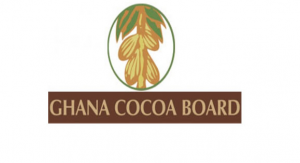Ghana has for the second time, recorded a drop in inflation rate since the country recorded its first case of COVID-19 in March this year.
The inflation rate for September, which is 10.4 percent, represents a 0.1 percent drop from the 10.5 percent recorded in August this year.
This essentially means that in the month of September 2020, the general price level in Ghana was 10.4% higher than prices in September 2019.
These figures were greatly affected by the inflation rate of food prices, which contributed almost 50 percent to the annual inflation.
The Government Statistician, Professor Samuel Kobina Annim, in giving a further breakdown of these figures explained the role played by food items in the drop in inflation for September.
“The food and non-alcoholic beverages division recorded a year-on-year inflation rate of 11.2%. This is 0.2
percentage point lower than in August 2020 (11.4%). Within the food division, vegetables (18.9%) was the subclass with the highest rates of inflation. This is lower than in the previous months. In contrast, month-on-month food inflation was -0.5%, with -3.9% for the vegetables subclass. Food contributed 47.6% to the total inflation, and thus it is still the predominant driver of year-on-year inflation. This percentage is, again, lower than the previous months and comparable to the contribution levels of food to total inflation prior to COVID-19.”
The Greater Accra Region, which mostly records the highest inflation rate, had a percentage point of 14.3%, while the Upper West Region recorded the lowest with 1.3 percent.
Inflation rates so far
Before the announcement of the first cases of coronavirus in Ghana on March 12, 2020, inflation in the country had remained fairly stable for months as it stood at 7.8 percent from January to March.
The annual rate of inflation however jumped to 10.6 percent in April from 7.8 percent in March.
This was also driven by higher food and commodity prices due to a rush for items, in areas affected by the partial lockdown.
After witnessing general rises in the following months, with July recording an inflation rate of 11.4 percent, the month of August recorded an inflation rate of 10.5 percent.
However, the month of September saw a 0.1 percent drop in relation to that of August.
Source: Citibusinessnews.com







